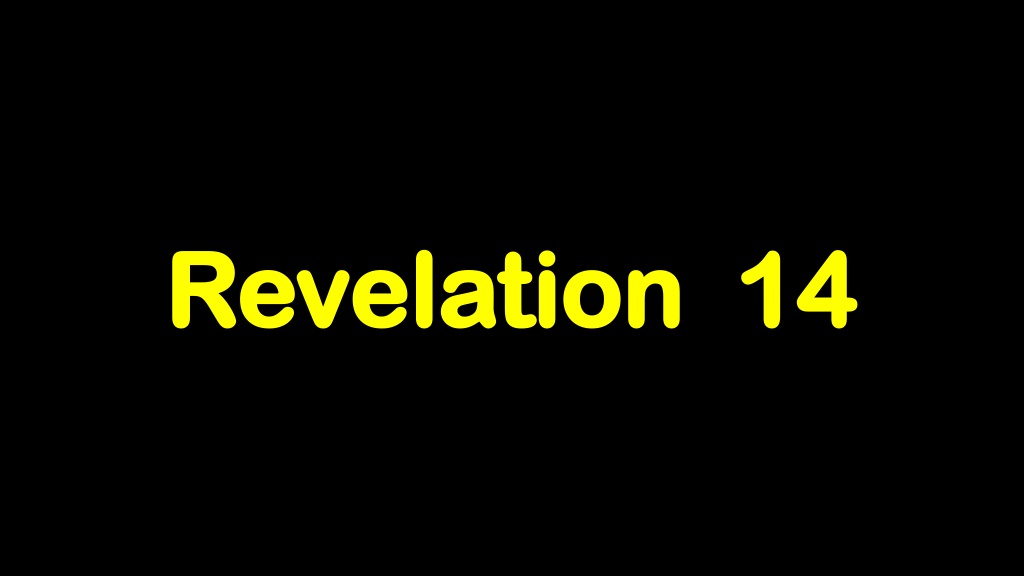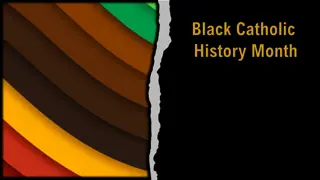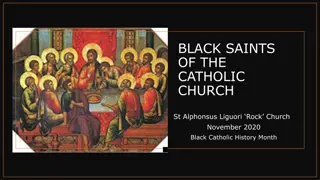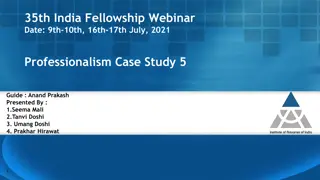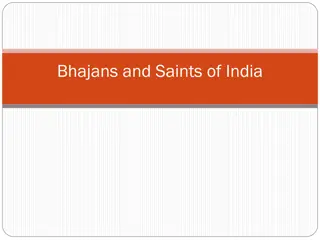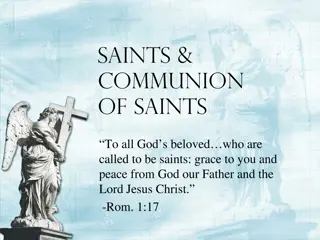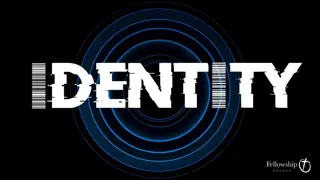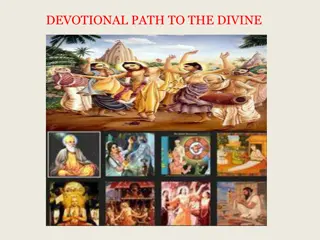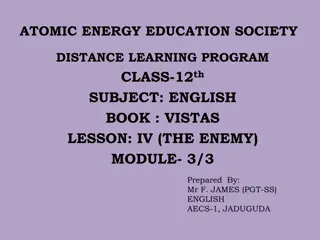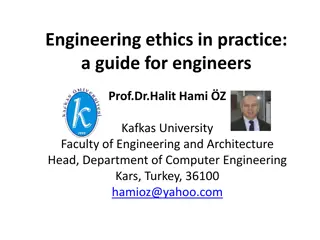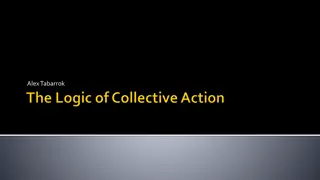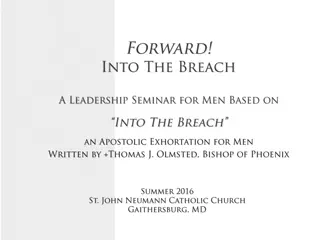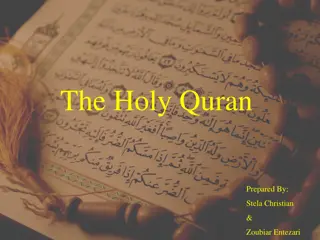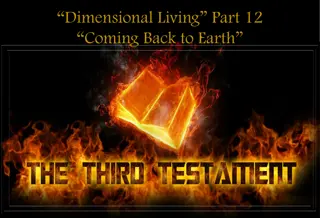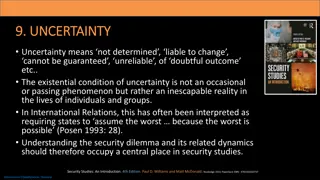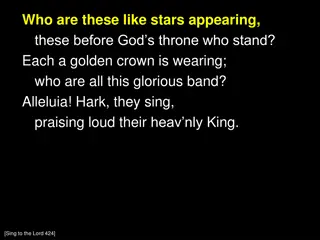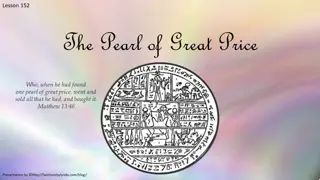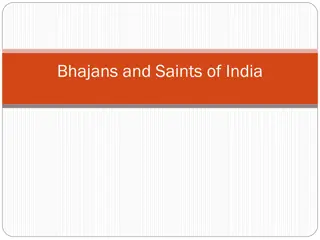Understanding the Saints' Dilemma in Revelations
The dilemma faced by the Saints in the book of Revelations is whether they can bow down to the beast (Caesar) to receive a certificate of worship, seek forgiveness, worship God, and still attain salvation. The passages in Revelations 14 and 20 highlight the consequences of worshipping the beast, emphasizing the eternal torment for those who do so. The imagery in the text underscores the severity of the choice between loyalty to God and allegiance to earthly powers.
Download Presentation

Please find below an Image/Link to download the presentation.
The content on the website is provided AS IS for your information and personal use only. It may not be sold, licensed, or shared on other websites without obtaining consent from the author. Download presentation by click this link. If you encounter any issues during the download, it is possible that the publisher has removed the file from their server.
E N D
Presentation Transcript
Revelation 14 Revelation 14
Revelation 14:9-11 (1 / 3) 2 Question Could the Saints get away with bowing the knee to the beast (Caesar) in order to receive a certificate of worship, get forgiveness, continue worshipping God and still go to Heaven? Revelation 14:9-11 9 And the third angel followed them, saying with a loud voice, If any man worship the beast and his image, and receive his mark in his forehead, or in his hand, 10 The same shall drink of the wine of the wrath of God, which is poured out without mixture into the cup of his indignation; and he shall be tormented with fire and brimstone in the presence of the holy angels, and in the presence of the Lamb. 11 And the smoke of their torment ascends up for ever and ever: and they have no rest day nor night, who worship the beast and his image, and whosoever receives the mark of his name.
Revelation 20:4 (2 / 3) 3 Question Could the Saints get away with bowing the knee to the beast (Caesar) in order to receive a certificate of worship, get forgiveness, continue worshipping God and still go to Heaven? Revelation 20:4 4 . . . and I saw the souls of them that were beheaded for the witness of Jesus, and for the word of God, and which had not worshipped the beast, . . .
Revelation 14:5 (3 / 3) 4 Question Could the Saints get away with bowing the knee to the beast (Caesar) in order to receive a certificate of worship, get forgiveness, continue worshipping God and still go to Heaven? Revelation 14:5 And in their mouth was found no guile; for they are without fault before the throne of God. Guile (pseudos) Rev #5579 7x in N.T. (3x in Rev) Falsehood, untruth, lie, false religion, duplicity Duplicity - to have a situation bothways
Revelation 14:9-11 - Image to the Beast 5 Honors Beast #1 Beast #2 gave life to Image Ordered people to: Worship Beast #1 Be killed if they refused Possible to worship image Perhaps a literal idol(s) Revelation 14:11 11 And the smoke of their torment ascends up for ever and ever: and they have no rest day nor night, who worship the beast and his image, and whosoever receives the mark of his name.
Revelation 13: Solution 6 Beast #1 Beast #2 Image to Beast Military Rome led By Caesars Law to worship Caesar & Literal Idol and Governors
The Roman Cult Of Emperor Worship 7 https://readingacts.com/2010/04/02/the-roman-cult-of-emperor-worship/ Julius Caesar allowed himself to be worshiped as a god, but his successor Augustus only allowed emperor worship outside of the city of Rome. Augustus is known in some inscriptions as CAESAR DIVI FILIUS, Son of God, that is, Son of eternal Caesar. Oaths were taken on the divine spirit of the emperor. His image was publicly adored. Worship of the image was a regular military duty. Caligula was the first emperor to demand to be worshiped, he demanded that citizens everywhere bow to his statue. Nero also claimed to be divine, although in neither case was there a requirement to worship the emperor. As Augustus had been Zeus incarnate, so Nero was Apollo incarnate. Even Seneca called him as the long- awaited savior of the world. Domitian took the title "lord and god" and ordered people to confess he was "lord and god" as a test of loyalty (Suetonius, The Lives of the Caesars, Book 8: Domitian 13).
The Roman Cult Of Emperor Worship 8 Marital says the "beasts in the arena" hailed him as a god. While this is clearly legendary, it does reflect a contemporary writer implying divine honors for Domitian. Dio Cassius (Roman History 67.14) refers to Domitian exiling a Flavius Clemens and his wife, Flavia Domitilla for "atheism". Atheism is the charge made against those who drifted into "things Jewish". Dio Chrysostom (40 115 AD, Greek orator, writer, philosopher, and historian) reported that Domitian liked to "be flattered" as "master and god". Those who refused to flatter him in this way risked trouble. (In Oratorio 45:1, see also First Discourse on Kingship, 1.14-15). How prevalent was the imperial cult in Asia Minor? Of the seven cities mentioned in Revelation 2-3, five have imperial priests and altars (all but Philadelphia and Laodicea) and six have imperial temples (all but Thyatira). At Pergamum, an imperial temple was established as early as 28 B.C. The city was so central to the imperial cult that Revelation describes this city as having the "throne of Satan". In short, a Christian in Asia Minor could not avoid the Imperial Cult.
The Roman Cult Of Emperor Worship 9 It was during the reign of Domitian when the imperial cult became a factor in unifying the empire in Asia Minor. The provincial cult allowed the Roman network of social obligations to be extended to virtually the whole population. If you lived within the empire, then you were a social client of the Emperor and owed him supreme allegiance. It is not hard to see, therefore, the struggle which Christians in the late first century would have showing allegiance to Rome - if that allegiance required worship of the Emperor, then the Christian must refuse or compromise their faith. https://readingacts.com/2010/04/02/the-roman-cult-of-emperor-worship/
Revelation 14:6 10 6 And I saw another angel fly in the midst of heaven, having the everlasting gospel to preach unto them that dwell on the earth, and to every nation, and kindred, and tongue, and people, Matt Mark Acts Romans 1 Cor 2 Cor Gal Eph Phil 1 Thess 1 Tim 2 Tim Rev - 1x - 2x - 5x - 1x - 1x - 1x (euangelion) - Ref #2098 41x in N.T. - 4x - 4x - 1x - 7x - 4x - 5x - 5x gospel Literally: God s good news Entire Bible Not limited to how a person becomes a Christian 1 biblehub.com
Revelation 14:8 11 8And there followed another angel, saying, Babylon is fallen, is fallen, that great city, because she made all nations drink of the wine of the wrath of her fornication. Fornication - 12x Rev 2:14 (1x - literal?) Rev 2:20 (1x - literal?) Rev 2:21 (1x - literal?) Rev 9:21 (1x - literal) Rev 14:8 (1x - figurative) Rev 17:2 (2x - figurative) Rev 17:4 (1x - figurative) Rev 18:3 (2x - figurative) Rev 18:9 (1x - figurative) Rev 19:2 (1x - figurative) made (pepotiken) Ref #4222 1 1x in N.T. to cause to drink to give to drink (No force implied) 1 biblehub.com
Revelation 14:14; 16 - With Clouds 12 14 And I looked, and behold a white cloud, and upon the cloud one sat like unto the Son of man, having on his head a golden crown, and in his hand a sharp sickle. 16 And he that sat on the cloud thrust in his sickle on the earth; and the earth was reaped. Revelation 1:7 17 Behold, he comes with clouds; and every eye shall see him, and they also which pierced him: and all kindreds of the earth shall wail because of him. Even so, Amen. Mark 13:26; 32 26 And then shall they see the Son of man coming in the clouds with great power and glory. 32But of that day and that hour knows no man, no, not the angels which are in heaven, neither the Son, but the Father.
Revelation 14:19-20 14 19And the angel thrust in his sickle into the earth, and gathered the vine of the earth, and cast it into the great winepress of the wrath of God. 20And the winepress was trodden without the city, and blood came out of the winepress, even unto the horse bridles, by the space of a thousand and six hundred furlongs [stadia]. Stadia is better translation Metaphor Compares judgment of evil to a winepress Compares grape juice to blood of evil people See Revelation Characteristic: Characteristic 1600 Furlongs
